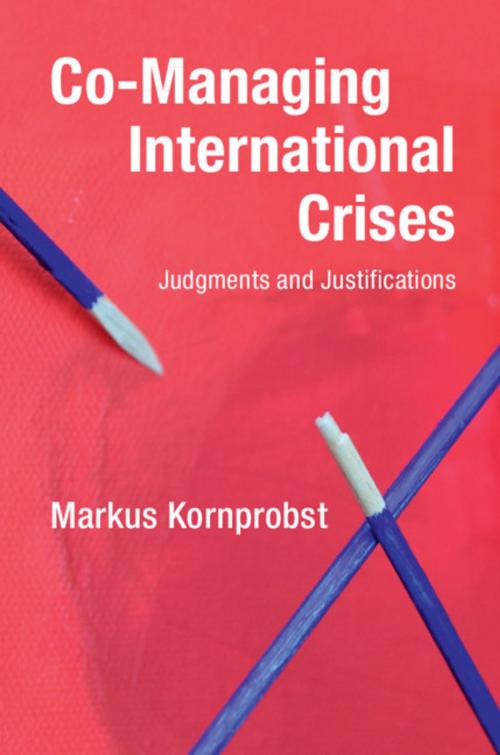Co-Managing International Crises
Judgments and Justifications
Nonfiction, Social & Cultural Studies, Political Science, International, Foreign Legal Systems, International Relations| Author: | Markus Kornprobst | ISBN: | 9781108751537 |
| Publisher: | Cambridge University Press | Publication: | April 30, 2019 |
| Imprint: | Cambridge University Press | Language: | English |
| Author: | Markus Kornprobst |
| ISBN: | 9781108751537 |
| Publisher: | Cambridge University Press |
| Publication: | April 30, 2019 |
| Imprint: | Cambridge University Press |
| Language: | English |
Markus Kornprobst examines the common assumption that states usually respond to crises individually, rather than together. He develops an innovative approach to analyse how crisis co-management comes to succeed or fail. He argues that actors draw from repertoires of taken-for-granted ideas, forming a set of pre-judgments. These are then revisited in justificatory encounters, making various degrees of co-management possible or impossible. This judging and justifying in turn leaves an impression on repertoires put to use for co-managing the next crisis. The author uses this model to analyse the attempts by France, Germany and the United Kingdom to co-manage the crises in Bosnia, Kosovo, Afghanistan and Iraq. He links individual reasoning and communication, paving the way for further research into crisis co-management, and providing novel insights into European attempts to act in international affairs.
Markus Kornprobst examines the common assumption that states usually respond to crises individually, rather than together. He develops an innovative approach to analyse how crisis co-management comes to succeed or fail. He argues that actors draw from repertoires of taken-for-granted ideas, forming a set of pre-judgments. These are then revisited in justificatory encounters, making various degrees of co-management possible or impossible. This judging and justifying in turn leaves an impression on repertoires put to use for co-managing the next crisis. The author uses this model to analyse the attempts by France, Germany and the United Kingdom to co-manage the crises in Bosnia, Kosovo, Afghanistan and Iraq. He links individual reasoning and communication, paving the way for further research into crisis co-management, and providing novel insights into European attempts to act in international affairs.















